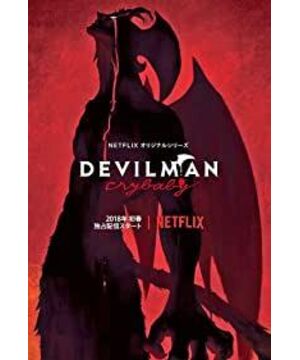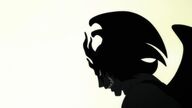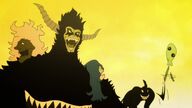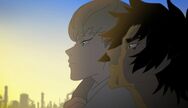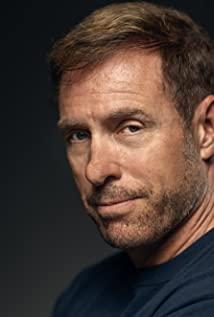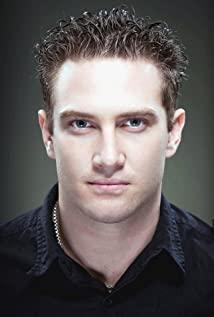Connotation! ! Do not enter before reading
After being recommended by a friend, I watched the ten episodes a few days ago. I have a lot of feelings, and the more I dig into the connotation of this show, the more depth I feel. What motivates me to dig deeper is that the characters are interesting, they contradict each other, or they are contradictory in themselves.
Demons have several opposites: Demons and Demons, Demons and Humans, Humans and Demons, and Humans and Humans.
Purely from the point of view of pairing, the demon appeared twice, the demon man appeared twice, and the human appeared three times. Here comes the question, isn't it? ——Humans and humans, yes, this is an opposite, if you expand it, it is like this:
Humans who harbor panic and hatred and humans who cause panic and hatred.
Li (Satan) mentioned "I love the simple and bright heart of the devil" in the tenth episode when he described his inhabitation of the earth. "Simple and bright" is of course based on Satan's values. If it is understood by human beings, it is:
Hatred equals destruction, panic equals riot—in short, do whatever you want.
But human values are clearly not like that. Hatred, panic, we all have it, but destruction, riot? It's not easy to equate - easy?
This is about religion. Purity of one's heart and few desires and enduring suffering are the teachings of the three major religions. Regardless of the ancient king's use of religion to rule, we only focus on the birth of religion. There is a difference between people, a gap or a gap, it depends on the person, but what doesn't change is the envy, admiration, jealousy—and even hatred. People have reason, but people also have the ability to reject reason.
- The equals sign can be easily drawn if you want.
Do you want to, or should you? Religion came into being to help people choose "should not", but in fact, this choice has always been in the hearts of human beings. From ancient times to the present, human beings have been tossing between the two, even if you are a devout believer and respected by others The Pope, you can't escape this choice, even though you yearn for the kingdom of heaven, fate never plays tricks - it's all your fault.
It seems far away. Back to Devilman.
Based on my understanding above, combined with the explanation in Episode 10 that "the demons turned into consciousness and gathered around the earth, and it was not until the birth of human beings that the demons were able to turn into entities again", so the connotation of demons is already obvious:
The desire to put destruction and riots into practice, and the human beings who are dominated by them. This desire comes from the hatred and panic that everyone has in their hearts.
It turns out that each of us can be a demon.
Although the devil has a heart, there is no love there. He didn't feel love until he was alone in the world, but he didn't know what it was. From a human standpoint, it's pathetic.
The saddest thing is humans.
Humans have become demons due to strong hatred and dissatisfaction, such as Ming, who has become powerful and has become difficult to control human nature. However, it is precisely because of this fact that Akira, Miko, and many demons cherish human nature more than humans, have more love and compassion, and even more like complete human beings. Is this punishment or redemption for the demons? ——Is the existence of demons a punishment or redemption for mankind?
Humans want to ask for redemption, but the reality is obviously their punishment, so they panic, they hate, they want destruction, they want riot - I know I'm wrong, but I'm not reconciled, because I'm wrong other people! I want to punish others, I want to do justice for heaven! I exercise the power of God, I can be redeemed, and then I will be clean!
Human selfishness is evident. Oh? What do you think you are! But it's just a paper tiger holding a Bible, heaven? Let's see what kind of virtue you have.
Miki's mother took Taro, who was hit by the devil, to worship in various churches, hoping that God could save Taro, but only got punished. In the previous episodes, although Taro was a child, he was poisoned by the dark side of society that is not suitable for children on TV, resulting in the lack of innocence that a child should have in his words and deeds. It's heart-wrenching, and it's ironic, bloody irony, that there's a demon in a Christian family, and a young child -- a human's relay. Some people say that the ending is unfinished and the ending is too middle. I think the ending of human destruction is inevitable, because Taro is the epitome of thousands of children poisoned by bad information on TV. With such a human relay, why is the human race not destroyed?
When it comes to relay, it must be talked about. Leaving aside the identity of Satan, when I was a child, when other children watched cartoons, I was reading a lot of books; when my peers were still high school students, they were already professors... This is the portrayal of gifted children. . But this gifted child was not gregarious since he was a child. He showed no mercy to the dying cat, turned a blind eye to the baton that Ming smiled and handed him over, and targeted and killed the humans who sabotaged his plan. The riot... is another danger to society. He is erudite, mature and calm on the outside, and cold and ruthless on the inside - is he human? Is he a man of flesh and blood? Yes, he wasn't - thankfully he wasn't. But some of the people implied by this role-they have been educated before they are young, use their genius to do illegal and criminal things, these dangerous geniuses, are they human?
They are human. Are they human?
They are existences bounded by human beings and Satan.
Why do they exist? It is a man-made disaster, and it is also the sin of human beings, which prompts them to lose the innocence of their children prematurely, as well as the budding humanity in childhood.
human nature. Some people say that the human nature is lost in this show, and the silence is better than the sound. That's right, but in terms of performance alone, it's not enough that silence is better than sound. There must be contrast. Miki Maki is the opposite of evil - good, she is strong and gentle, she is brave and kind, she weeps for the misfortune of others, she laughs for the happiness of others, she is an idealized human being. Perhaps because she was too perfect, Miki Maki was pushed to the forefront by some audiences: Our Lady! White lotus! nausea! hate her! Okay, free speech, but I want to ask these viewers: You say you hate her, so what kind of human do you like? Like the mob who mutilated her? Then you clearly said that you like the mob, why are you beating around the bush?
Might as well learn from Kuroda Miki, learn from the devil who you think is not as good as you. "I hate you the most, but I like you the most." The girl's sentence was simple, but it explained the contradictions of human beings and the value orientation of human nature. It was so true, without the slightest distortion and hypocrisy.
May you live true.
In fact, while watching the ninth episode, I thought of many horrific massacres in history, such as the massacre of Jews by the Nazis, the massacre of witches in the Middle Ages, and the massacre of heliocentric scholars by the church... Then I felt a chill down my spine. Suspicion, frame-up, killing... No one knows who is crazy. Looking at the current keyboard warriors, human flesh, and trolls, it turns out that human beings have never stopped - they have never stopped hurting each other, but the weapons have changed from stones and torches to high-tech and information bombing.
What else can I say.
I can only say loudly and solemnly:
We are all demons.
World Peace.
View more about Devilman: Crybaby reviews


